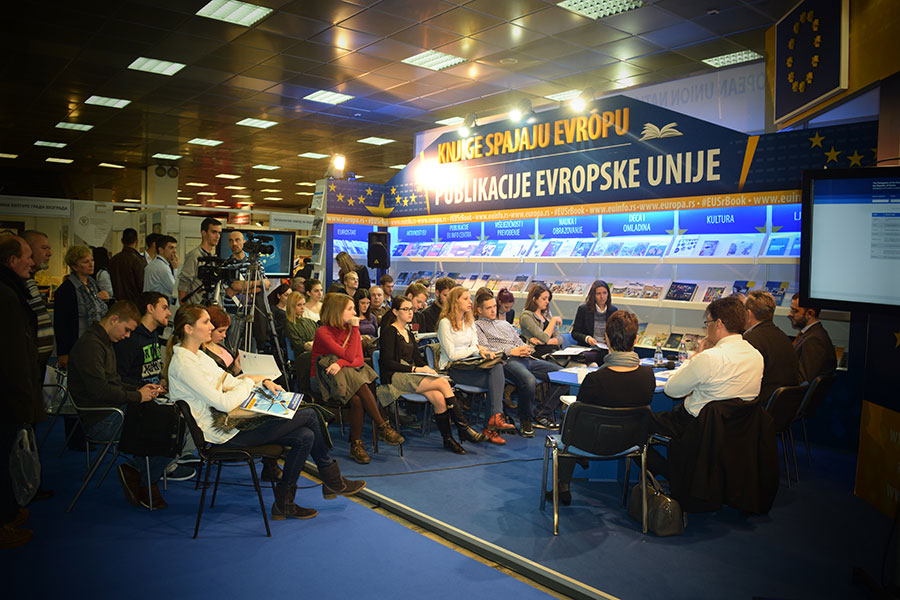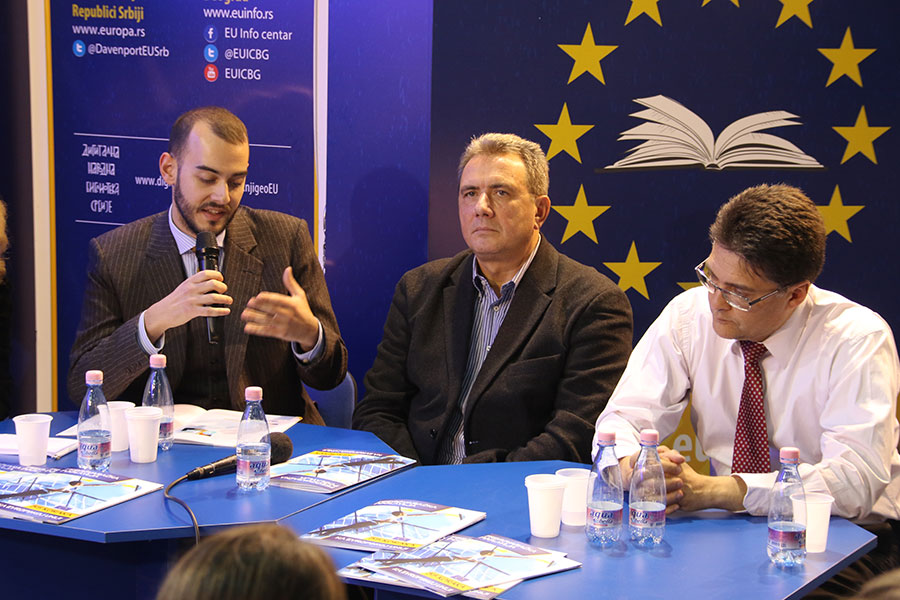Photo: FoNet
Today, Belgrade Book Fair saw the presentation of EU Info Centre publication “Negotiating Chapters in 35 Steps”. Students and EU book stand visitors discussed current state of European integration process with Head of Information, Communication and Press at the EU Delegation to Serbia Ramunas Janušauskas, Professor of the Faculty of Political Sciences Jovan Teokarevic and Ivan Vejvova Member of Serbian Negotiating Team for Negotiations with the EU.
Ramunas Janušauskas of EU Delegation said there was no doubt Serbian EU membership negotiations would continue for several years because such was the case of any other candidate, but he added that Serbia would benefit from both the process and membership.
“Many of you will have an opportunity to work in EU-related areas,” Janušauskas told students. “One step at a time and Serbia will join the EU and offer you all a chance to work in various areas that interest you.”
He said that Union membership would, among other things, bring Serbia better starting position when entering into trade agreements. Through its pre-accession programmes, the EU is already supporting candidate countries. As an example, he mentioned IPA programmes for rural areas thanks to which, as he put it, even farmers, sceptical at first, had a change of heart.

Asked whether EU Member States could block Serbia’s accession due to enlargement fatigue, Janušauskas said that, so far, no country had ever been blocked in the accession process. Norway and Iceland have stopped EU accession negotiations on their own, Janušauskas recalled.
Professor of the Faculty of Political Sciences in Belgrade, Jovan Teokarevic, said that Serbian citizens were not fully aware of EU activities in Serbia and accession process.
Public opinion survey conducted for the purpose of Government Office for European Integration in June, showed three quarters of respondents could not name a single EU-funded project in Serbia, Teokarevic said and added the fact that the EU funded some 600 projects in Serbia.
“It is hard to imagine walking through the streets of not only Belgrade, but any other city in Serbia, without noticing signs saying that this or that was done through EU support in some hospital or school,” Teokarevic said, adding that it is precisely why the EU Info Centre publication on negotiating chapters is very important.
Ivan Vejvoda of Serbian negotiating team said that even though negotiations were yet to be opened, work on individual was carried out daily. “Screening process included an overview of each of the chapters,” Vejvoda said and added that Serbia had prepared Chapter 32, dedicated to finance, and submitted Action Plans for Chapters 23 and 24 the day before. He said he hoped to see the first chapters being opened soon.




